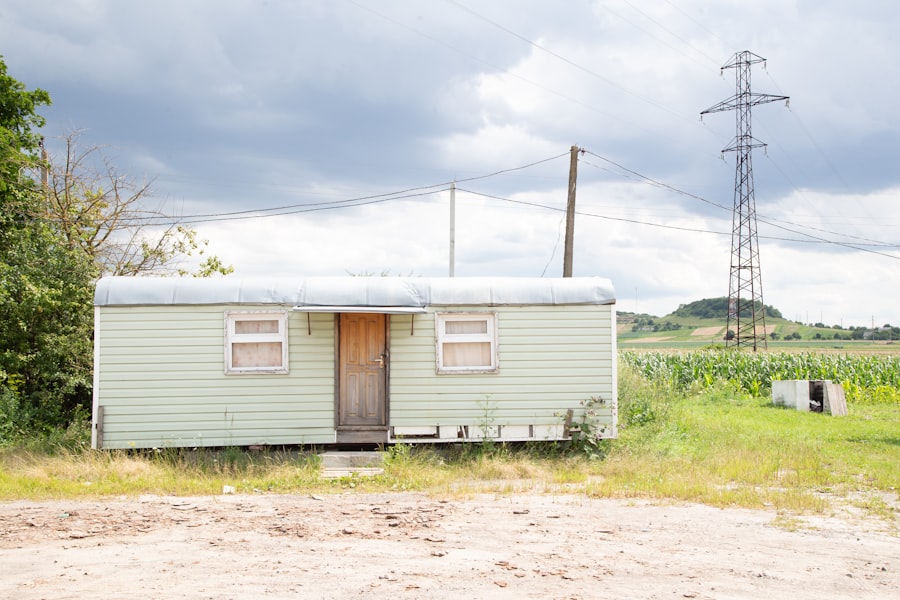Mobile home dealers serve as intermediaries between manufacturers and consumers, facilitating the sale of manufactured homes. These dealers typically offer a range of services, including the sale of new and used mobile homes, financing options, and sometimes even land for placement. Understanding the role of mobile home dealers is crucial for potential buyers, as they can significantly influence the purchasing experience.
Dealers often have established relationships with manufacturers, which can provide buyers with access to a wider selection of homes and potentially better pricing. Moreover, mobile home dealers vary in their business models. Some operate as independent entities, while others may be part of larger chains or franchises.
Independent dealers might offer a more personalized service, often taking the time to understand the specific needs and preferences of their clients. In contrast, larger chains may provide a more standardized experience but can benefit from economies of scale, potentially leading to lower prices. Understanding these differences can help buyers choose a dealer that aligns with their expectations and requirements.
Key Takeaways
- Mobile home dealers specialize in selling manufactured homes and can provide valuable information and guidance throughout the buying process.
- Researching mobile home dealers near you can help you find reputable dealers with a good selection of homes and positive customer reviews.
- Visiting mobile home dealerships allows you to see the homes in person, ask questions, and get a feel for the dealer’s customer service and professionalism.
- Comparing mobile home dealers can help you find the best deal and the right home for your needs, so be sure to consider factors like pricing, home quality, and customer service.
- There are various financing options available for mobile homes, including traditional mortgages, chattel loans, and in-house financing from the dealer, so explore all your options before making a decision.
- Negotiating with mobile home dealers can help you secure a better price or additional perks, so don’t be afraid to negotiate and advocate for your needs.
- Inspecting mobile homes is crucial before finalizing a purchase, so be sure to thoroughly inspect the home for any issues or damages that may affect its value or safety.
- Finalizing the purchase of a mobile home involves signing paperwork, arranging for delivery and installation, and ensuring that all necessary permits and inspections are in order.
Researching Mobile Home Dealers Near Me
When embarking on the journey to purchase a mobile home, the first step is often to research local mobile home dealers. This process can begin with a simple online search, where potential buyers can find listings of dealerships in their area. Websites like Yelp, Google Maps, and specialized real estate platforms can provide valuable insights into the reputation and offerings of various dealers.
Customer reviews and ratings can serve as a guide to understanding the experiences of previous buyers, highlighting both positive interactions and potential red flags. In addition to online research, visiting local dealerships can provide a more tangible sense of what each dealer has to offer. Many dealerships have physical locations where prospective buyers can view models in person, allowing them to assess quality and design firsthand.
Engaging with sales representatives during these visits can also yield important information about inventory, pricing, and available financing options. Furthermore, local community boards or social media groups can be excellent resources for recommendations and advice from individuals who have recently navigated the mobile home buying process.
Visiting Mobile Home Dealerships

Once potential buyers have narrowed down their options, visiting mobile home dealerships becomes an essential step in the purchasing process. During these visits, it is important to approach each dealership with a clear set of criteria in mind. Buyers should consider factors such as the size of the home, layout preferences, and desired amenities.
Many dealerships showcase a variety of models on their lots, allowing buyers to explore different styles and configurations that may suit their needs. While at the dealership, engaging with sales staff is crucial. Knowledgeable representatives can provide insights into the features of each model, including construction quality, energy efficiency ratings, and customization options.
It is also beneficial to ask about warranties and after-sales support, as these factors can significantly impact long-term satisfaction with the purchase. Taking notes during these visits can help buyers compare their experiences across different dealerships and make informed decisions later on.
Comparing Mobile Home Dealers
| Dealer Name | Location | Number of Mobile Homes Available | Customer Reviews |
|---|---|---|---|
| ABC Mobile Homes | City A | 50 | 4.5/5 |
| XYZ Mobile Homes | City B | 40 | 4.2/5 |
| 123 Mobile Homes | City C | 60 | 4.8/5 |
After visiting several dealerships, buyers should take the time to compare their experiences and offerings. This comparison process involves evaluating not only the homes available but also the overall customer service provided by each dealer. Factors such as responsiveness to inquiries, willingness to answer questions, and transparency regarding pricing can all influence a buyer’s decision.
A dealer that prioritizes customer satisfaction may be more likely to provide support throughout the purchasing process and beyond. Additionally, it is important to consider the financing options presented by each dealer. Some dealerships may have partnerships with lenders that offer competitive rates or special financing programs for mobile home purchases.
Buyers should inquire about these options and compare them against other financing avenues available in their area. Understanding the total cost of ownership—including monthly payments, insurance, and maintenance—can help buyers make a more comprehensive comparison between dealers.
Financing Options for Mobile Homes
Financing a mobile home purchase can be complex due to the various options available and the unique nature of manufactured housing. Traditional mortgages may not always apply to mobile homes, particularly if they are not permanently affixed to land. Instead, buyers often explore specialized loans designed for manufactured homes, such as chattel loans or FHA Title I loans.
Chattel loans are secured by the home itself rather than real estate, making them a common choice for those purchasing mobile homes that will be placed on rented lots. Buyers should also consider their credit scores when exploring financing options. Lenders typically evaluate creditworthiness when determining loan eligibility and interest rates.
Those with higher credit scores may qualify for better terms, while those with lower scores might face higher interest rates or stricter lending criteria. It is advisable for potential buyers to review their credit reports before applying for financing and address any discrepancies that could impact their loan applications.
Negotiating with Mobile Home Dealers

Negotiation is a critical aspect of purchasing a mobile home that many buyers may overlook. Once a buyer has identified a model they are interested in, engaging in negotiation can lead to significant savings or added value in the purchase agreement. Buyers should approach negotiations armed with knowledge about market prices for similar models and any promotions or discounts currently offered by the dealership.
This information can provide leverage during discussions with sales representatives. Additionally, it is important for buyers to remain flexible during negotiations. While it is essential to have a target price in mind, being open to alternative offers—such as upgrades or additional services—can lead to a more favorable outcome.
For instance, if a dealer cannot meet a buyer’s price point, they may be willing to include appliances or furniture as part of the deal instead. Establishing rapport with the sales staff can also facilitate smoother negotiations; building a positive relationship may encourage them to work harder to meet the buyer’s needs.
Inspecting Mobile Homes
Before finalizing any purchase, conducting a thorough inspection of the mobile home is paramount. This step ensures that buyers are fully aware of the condition of the home they are considering and helps identify any potential issues that could arise after purchase. Buyers should look for signs of wear and tear both inside and outside the home, including checking for water damage, structural integrity, and appliance functionality.
It may be beneficial to bring along a knowledgeable friend or hire a professional inspector who specializes in manufactured homes. During the inspection process, buyers should also inquire about the home’s construction materials and energy efficiency features. Understanding how well-insulated the home is or whether it meets current building codes can impact long-term satisfaction and utility costs.
Additionally, checking for compliance with safety standards—such as smoke detectors and carbon monoxide detectors—can provide peace of mind regarding safety within the home.
Finalizing the Purchase of a Mobile Home
Once all inspections are complete and negotiations have reached a satisfactory conclusion, it is time to finalize the purchase of the mobile home. This process typically involves signing a purchase agreement that outlines all terms discussed during negotiations, including price, financing details, and any included warranties or services. Buyers should carefully review this document before signing to ensure that all agreed-upon terms are accurately represented.
After signing the purchase agreement, buyers will need to arrange for financing if they have not already done so. This may involve submitting additional documentation to lenders or working with dealership representatives to secure final loan approval. Once financing is in place, buyers will typically need to pay any required deposits or down payments before taking possession of their new home.
Finally, understanding local regulations regarding mobile home placement—such as zoning laws or permits—will be essential for ensuring a smooth transition into ownership and occupancy of the new residence.

